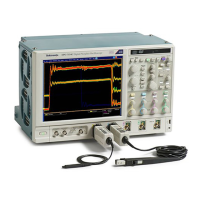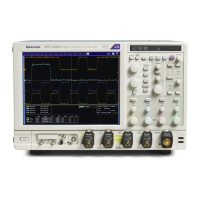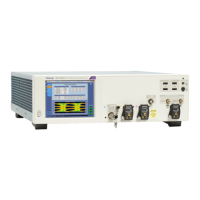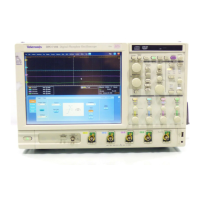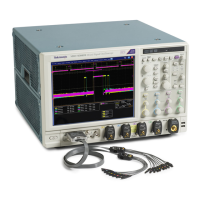Specifications (MSO/DPO5000 Series)
Table 2-2: Horizontal and acquisition system specifications (cont.)
Characteristic Description
The formula to calculate the delta-time measurement accuracy (DTA
max
) for a given instrument
setting and input signal is given below (assumes insignificant signal content above Nyquist
and insignificant error due to aliasing):
SR
1
= slew rate around 1st point in measurement (1
st
edge)
SR
2
= slew rate around 2nd point in measurement (2
nd
edge)
N =input-referred noise (V
RMS
)
TBA = time base accuracy (5 ppm)
t
p
= delta-time measurement duration (seconds)
RD = (record length)/(sample rate)
t
sr
= 1/(sa mple rate)
assume edge shape that results from Gaussian filter response
Delta-time m
easurement
accuracy
The term under the square-root sign is the stability and is due to TIE (Time Interval Error). The
errors due to this term occur throughout a single-shot measurement. The second term is due
to both the absolute center-frequency accuracy and the center-frequency stability of the time
base and varies between multiple single-shot measurements over the observation interval (the
amount of time from the first single-shot measurement to the final single-shot measurement).
The observation interval may not exceed 1 year.
2–10 MSO70000/C, DSA70000B/C, DPO7000B/C, DPO7000, MSO5000, DPO5000 Series
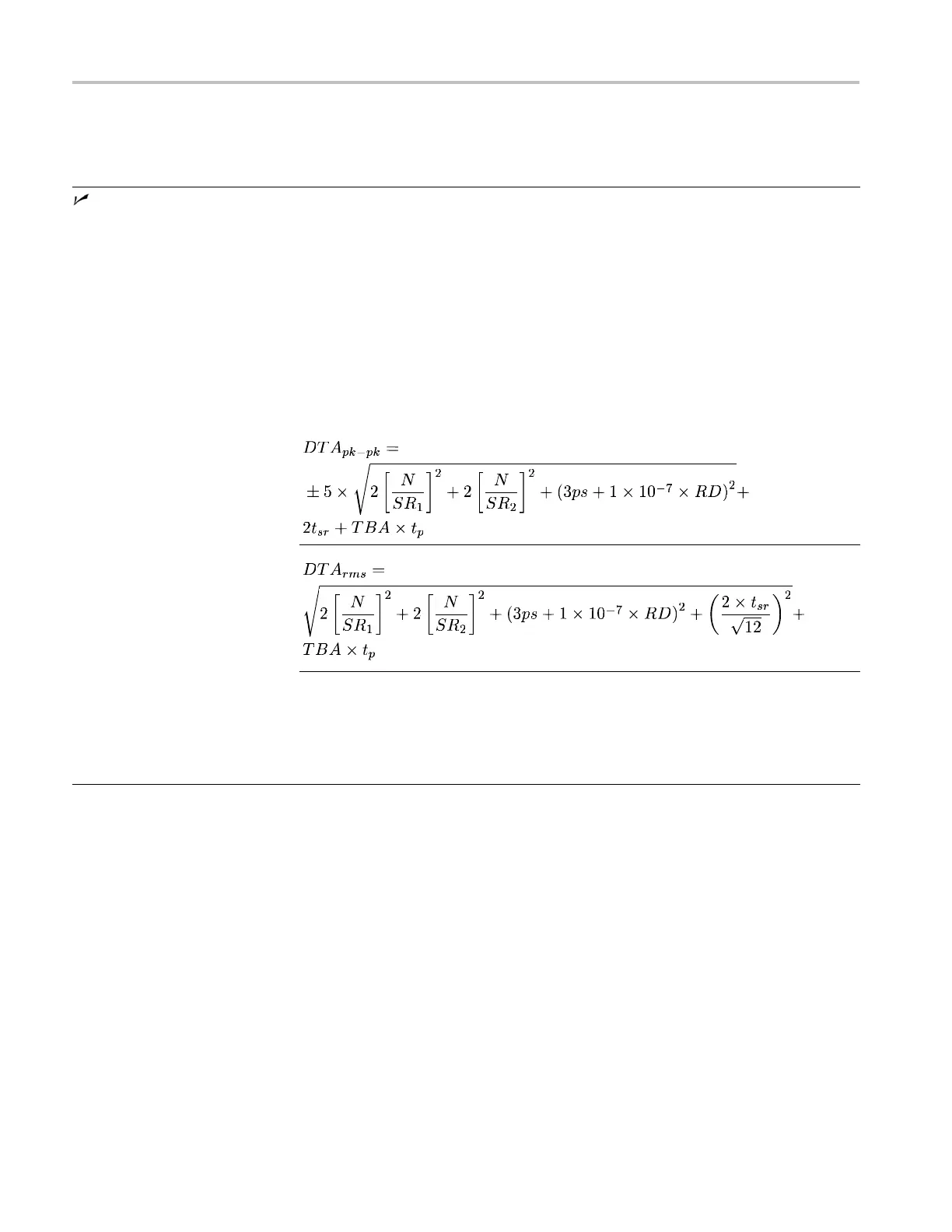